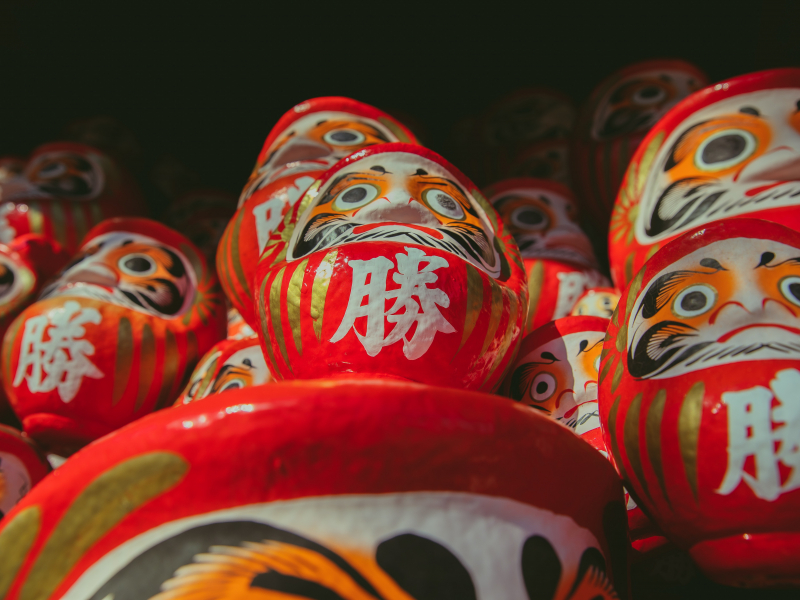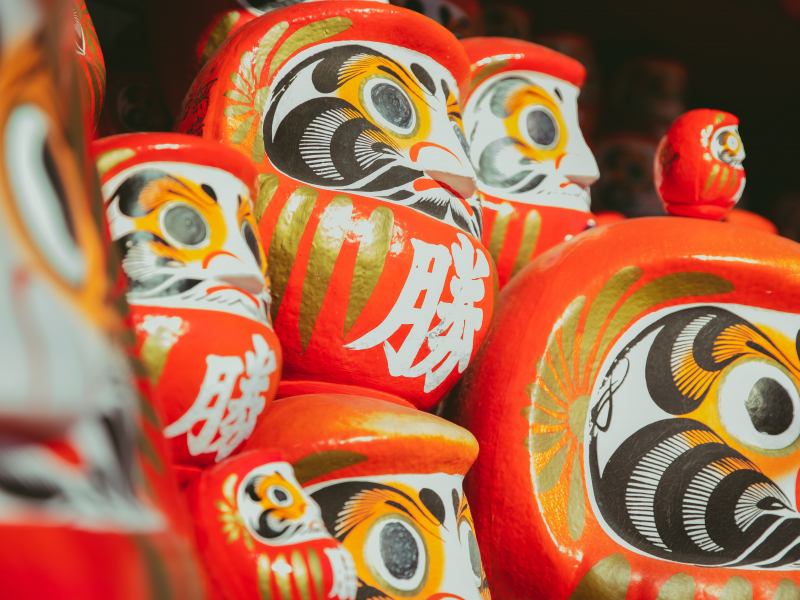Daruma
Daruma dolls, also known as Dharma dolls, are traditional Japanese talismans that symbolize perseverance, goal-setting, and good luck. These dolls are typically made of papier-mâché and are modeled after Bodhidharma, the founder of Zen Buddhism.
Daruma dolls have a distinctive round shape with a solid, weighted bottom that allows them to always return to an upright position when tilted. They are usually painted red and feature simple facial features, such as large white eyes and an absent mouth. The eyes are left blank when the doll is purchased, and the owner is encouraged to paint in one eye while making a wish or setting a goal.
The daruma doll serves as a visual reminder of the goal or wish that the owner has set. By painting in one eye, it symbolizes the commitment to achieving that goal. The other eye is left blank, representing the unfinished task. Once the goal is accomplished or the wish is fulfilled, the second eye is painted, signifying the completion of the objective.
The Daruma doll embodies the spirit of perseverance and determination. It reminds individuals to stay focused and resilient in the face of challenges and obstacles. The process of painting the eyes acts as a personal motivation and a constant reminder of the goal at hand.
Daruma dolls are often used in various Japanese traditions and ceremonies. They are commonly displayed in homes, offices, and temples, serving as a source of inspiration and encouragement. During New Year's celebrations, many people buy new daruma dolls, paint one eye, and then burn the old ones as a symbolic gesture of renewal and starting fresh.














